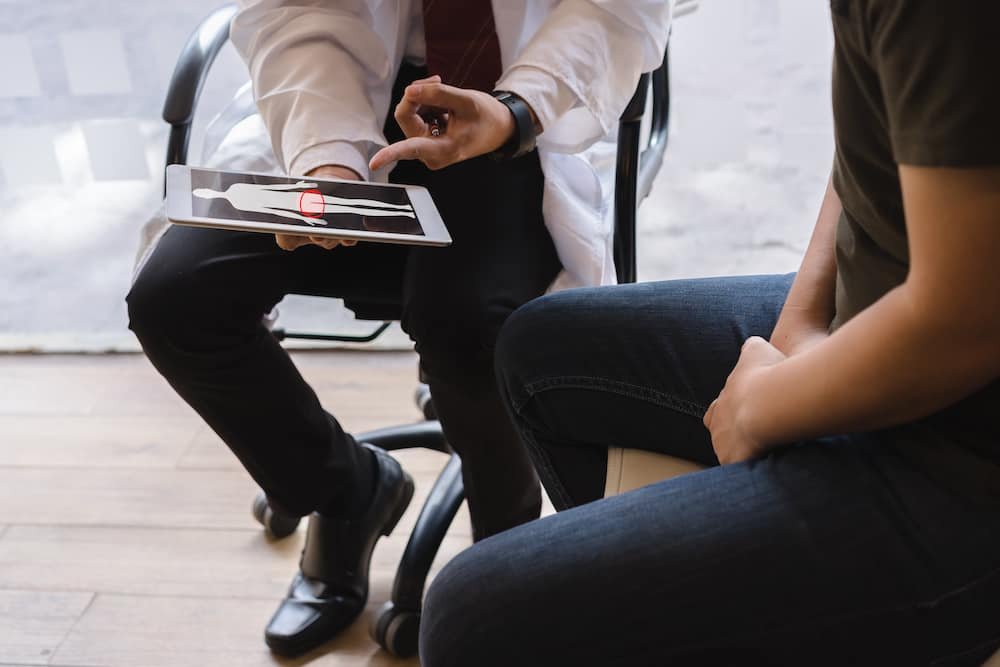The impact of erectile dysfunction (ED) extends beyond just physical health; it can also take a significant psychological toll. While ED is often thought of as a purely physical problem, the stress, anxiety, and feelings of inadequacy that come with it can create a harmful feedback loop. This cycle, where stress worsens ED and ED leads to more anxiety, can feel impossible to escape.
In this article, we will discuss how stress and anxiety contribute to ED, how they create a cycle that reinforces the problem, and most importantly, how to break this cycle through practical, everyday changes.
How Stress Messes with Your Body
When you’re stressed, your body goes into overdrive. You might feel your heart racing or notice your muscles tightening, and that’s because stress activates your fight-or-flight response. While this can be useful in some situations, like when you’re facing danger, it’s not so helpful when you’re just trying to relax and enjoy intimacy. This response triggers an increase in cortisol, the stress hormone, and causes blood vessels to constrict, limiting blood flow to the penis. Since an erection requires healthy blood flow, this stress-induced response can make it harder to perform.1
Medications like Viagra can help with this by improving blood flow, but relying on these pills alone won’t address the underlying stress or anxiety that may be contributing to ED. Stress and ED can become a tangled mess where each worsens the other, so simply treating the symptoms isn’t always enough.1
The Psychological Toll of ED

For many men, the emotional strain of ED can lead to feelings of shame, embarrassment, and a loss of confidence. The fear of failure during sexual activity can create a vicious cycle, where the stress of not being able to perform leads to further anxiety, making the issue even worse. Over time, these emotions can lead to depression, a common comorbidity with ED. 1
Additionally, the emotional impact of ED can spill over into relationships. Partners may feel rejected or unattractive, leading to further emotional distress for both individuals involved. This can result in intimacy withdrawal and increased feelings of isolation, compounding the negative psychological effects of the condition.1
These psychological factors not only exacerbate the physical aspects of ED, but they also contribute to a self-fulfilling prophecy: anxiety about performance makes it even harder to perform. This creates a loop where ED and anxiety reinforce each other, making it harder to break free from the cycle.1
The ED-Stress Cycle
The relationship between stress and ED forms a harmful feedback loop. Stress leads to physical changes in the body that make it difficult to achieve and maintain an erection. The resulting ED leads to performance anxiety and self-doubt, which further increases stress, ultimately worsening both the psychological and physical aspects of the condition.1
This cycle often becomes a self-fulfilling prophecy. Men may start to anticipate failure, leading to more anxiety, which only reinforces the cycle of ED. This vicious cycle makes it feel nearly impossible to escape. But understanding the role that stress and anxiety play is the first step toward breaking free from them.
Breaking the Cycle: Realistic, Everyday Changes

Breaking the ED-stress cycle isn’t about quick fixes—it requires a comprehensive approach that addresses both the physical and psychological components of the condition. Here’s how you can start to break the cycle:
- Managing stress: Stress management is essential in reducing cortisol levels and improving erectile function. Techniques such as deep breathing exercises, mindfulness meditation, or regular physical exercise can help manage stress.
- Cognitive behavioral therapy (CBT): CBT is an effective way to manage performance anxiety and the negative thought patterns that accompany ED. By addressing these fears head-on, CBT helps shift focus away from worry about performance and onto the experience itself, reducing anxiety and improving sexual function.
- Open communication: One of the most important steps in breaking the ED-stress cycle is open communication with your partner. Talking about the issue openly can help reduce feelings of isolation, shame, and anxiety. This understanding between partners can relieve some of the emotional pressure associated with ED, improving intimacy and reducing stress.
- ED medications: Medications like Viagra (sildenafil) can be an essential tool in treating ED. These medications work by improving blood flow to the penis, helping men with ED maintain an erection. While they are effective in the moment, it’s important to remember that they don’t address the psychological factors contributing to the condition. They should be used as part of a comprehensive treatment plan that also includes stress management and psychological interventions.
- Healthy habits: Adopting a healthy lifestyle can significantly improve erectile function. Regular exercise, a balanced diet, adequate sleep, and avoiding smoking or excessive alcohol consumption can help regulate hormone levels and improve circulation, which is crucial for maintaining erectile health.1
Conclusion
The ED-stress cycle can feel like an endless loop, but it’s important to recognize that it is possible to break free from it. By taking a multi-faceted approach that combines stress management, therapy, open communication, medication, and healthy lifestyle choices, men can address both the physical and psychological aspects of ED. While ED medications like Viagra can offer immediate relief, they should be combined with other strategies to break the cycle for the long term.
Bibliography
- Allen, Mark S, et al. “The Psychology of Erectile Dysfunction.” Current Directions in Psychological Science, vol. 32, no. 6, 8 Sept. 2023, https://doi.org/10.1177/09637214231192269.








